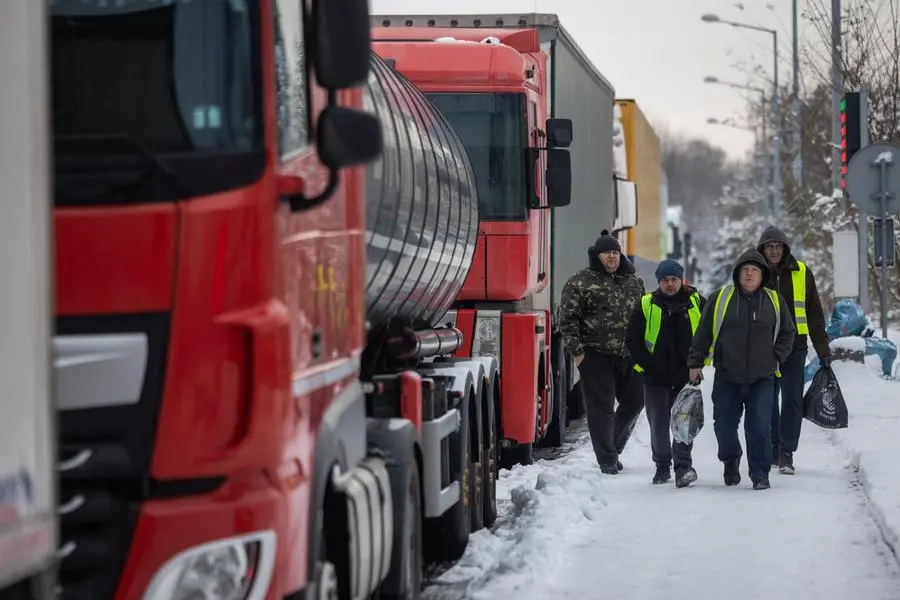PHOTO
Ukraine called on neighbouring Poland on Monday to act against "xenophobia" after Polish farmers spilt EU-destined Ukrainian grain on the ground during protests on the border between the allies.
Polish police have said they are investigating an incident during which farmers had stopped a truck carrying Ukrainian grain on Sunday as it crossed the border and poured out its cargo.
Social media images showed the produce in the middle of the road as farmers staged blockades across Poland to protest competition from Ukraine and heavy EU regulations.
The incident came several weeks after Polish truckers stopped a two-month blockade of the border.
"We have another escalation of violence on our common border," said Taras Kachka, Ukraine's deputy economy minister.
"The lack of reaction from the Polish authorities to the destroyed cargo will lead to more xenophobia and political violence," he added.
Poland took in more than a million Ukrainian refugees after Russia invaded its neighbour in 2022, but strains in relations with Kyiv have grown in recent months, amid economic disputes and some anti-Ukrainian sentiment among Poland's right-wing electorate.
The mayor of Ukraine's Lviv, a city close to the Polish border, slammed the destruction of Ukrainian grain in wartime.
"Ukrainians are literally watering the fields with blood which this grain is grown on," Andriy Sadovy said on social media.
"Harvesting wheat in a field that has seen war is like working as a sapper," he added, calling those who poured the grain "pro-Russian provocateurs".
The leader of the halted Polish haulier protest, Rafal Mekler, on Monday defended the pouring of the grain and said he was at the border.
Mekler, a far-right local politician, said Ukraine represented Nazi collaborator Stepan "Bandera and abortion" -- a historical reference used by Russia to justify its Ukraine invasion.
Polish hauliers -- who want the re-introduction of restrictions to enter the EU for their Ukrainian competitors -- have vowed to resume a large-scale border blockade if their demands are not met.





















